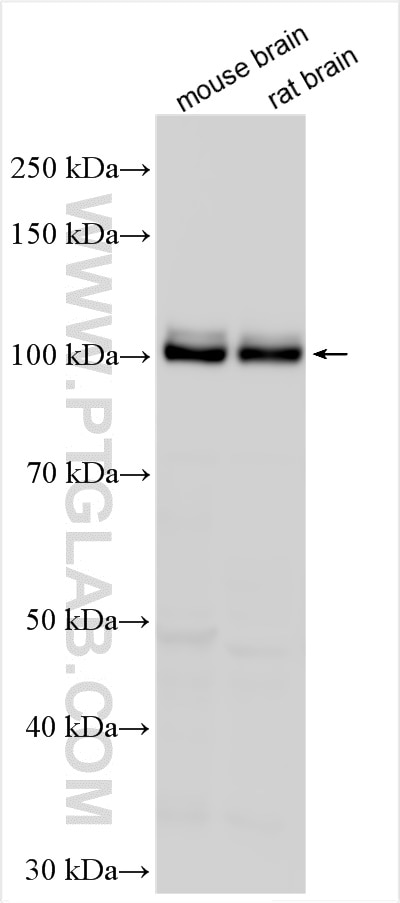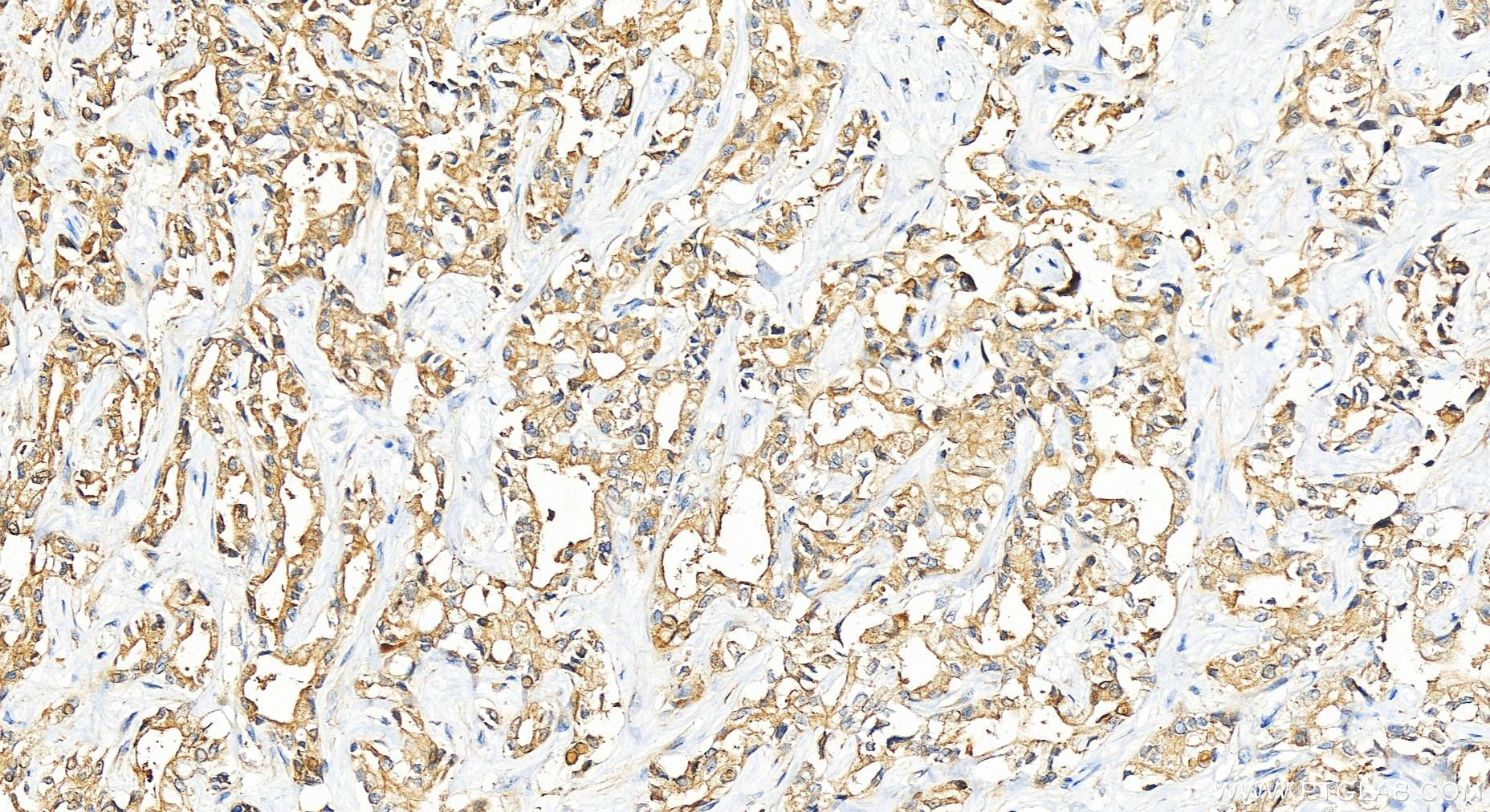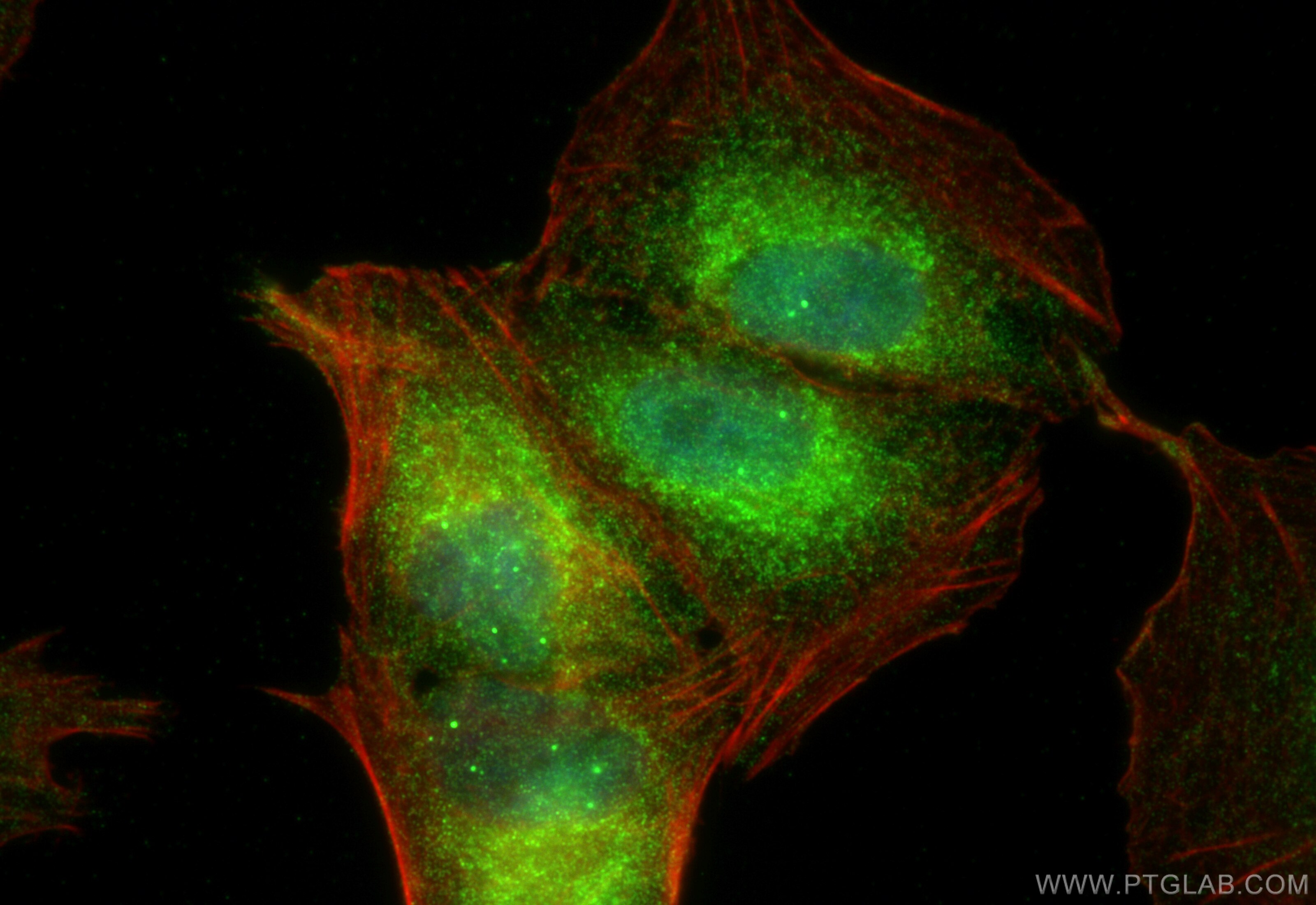Anticorps Polyclonal de lapin anti-INPP4A
INPP4A Polyclonal Antibody for WB, IHC, IF/ICC, ELISA
Hôte / Isotype
Lapin / IgG
Réactivité testée
Humain, rat, souris
Applications
WB, IHC, IF/ICC, ELISA
Conjugaison
Non conjugué
N° de cat : 12665-1-AP
Synonymes
Galerie de données de validation
Applications testées
| Résultats positifs en WB | tissu cérébral de souris, tissu cérébral de rat |
| Résultats positifs en IHC | human intrahepatic cholangiocarcinoma tissue, il est suggéré de démasquer l'antigène avec un tampon de TE buffer pH 9.0; (*) À défaut, 'le démasquage de l'antigène peut être 'effectué avec un tampon citrate pH 6,0. |
| Résultats positifs en IF/ICC | cellules A549, |
Dilution recommandée
| Application | Dilution |
|---|---|
| Western Blot (WB) | WB : 1:500-1:2000 |
| Immunohistochimie (IHC) | IHC : 1:50-1:500 |
| Immunofluorescence (IF)/ICC | IF/ICC : 1:200-1:800 |
| It is recommended that this reagent should be titrated in each testing system to obtain optimal results. | |
| Sample-dependent, check data in validation data gallery | |
Informations sur le produit
12665-1-AP cible INPP4A dans les applications de WB, IHC, IF/ICC, ELISA et montre une réactivité avec des échantillons Humain, rat, souris
| Réactivité | Humain, rat, souris |
| Hôte / Isotype | Lapin / IgG |
| Clonalité | Polyclonal |
| Type | Anticorps |
| Immunogène | INPP4A Protéine recombinante Ag3346 |
| Nom complet | inositol polyphosphate-4-phosphatase, type I, 107kDa |
| Masse moléculaire calculée | 972 aa, 109 kDa |
| Poids moléculaire observé | 100-110 kDa |
| Numéro d’acquisition GenBank | BC028361 |
| Symbole du gène | INPP4A |
| Identification du gène (NCBI) | 3631 |
| Conjugaison | Non conjugué |
| Forme | Liquide |
| Méthode de purification | Purification par affinité contre l'antigène |
| Tampon de stockage | PBS with 0.02% sodium azide and 50% glycerol |
| Conditions de stockage | Stocker à -20°C. Stable pendant un an après l'expédition. L'aliquotage n'est pas nécessaire pour le stockage à -20oC Les 20ul contiennent 0,1% de BSA. |
Informations générales
Inositol polyphosphate 4 phosphatase (INPP4A) belongs to the group of phosphoinositide phosphatases controlling proliferation, apoptosis, and endosome function by hydrolyzing phosphatidylinositol 3,4-bisphosphate. INPP4A is highly expressed in the central nervous system, which is shown to play a key role in glutamate excitotoxicity and cell proliferation. (PMID: 36653678, PMID: 31938306)
Protocole
| Product Specific Protocols | |
|---|---|
| WB protocol for INPP4A antibody 12665-1-AP | Download protocol |
| IHC protocol for INPP4A antibody 12665-1-AP | Download protocol |
| IF protocol for INPP4A antibody 12665-1-AP | Download protocol |
| Standard Protocols | |
|---|---|
| Click here to view our Standard Protocols |




